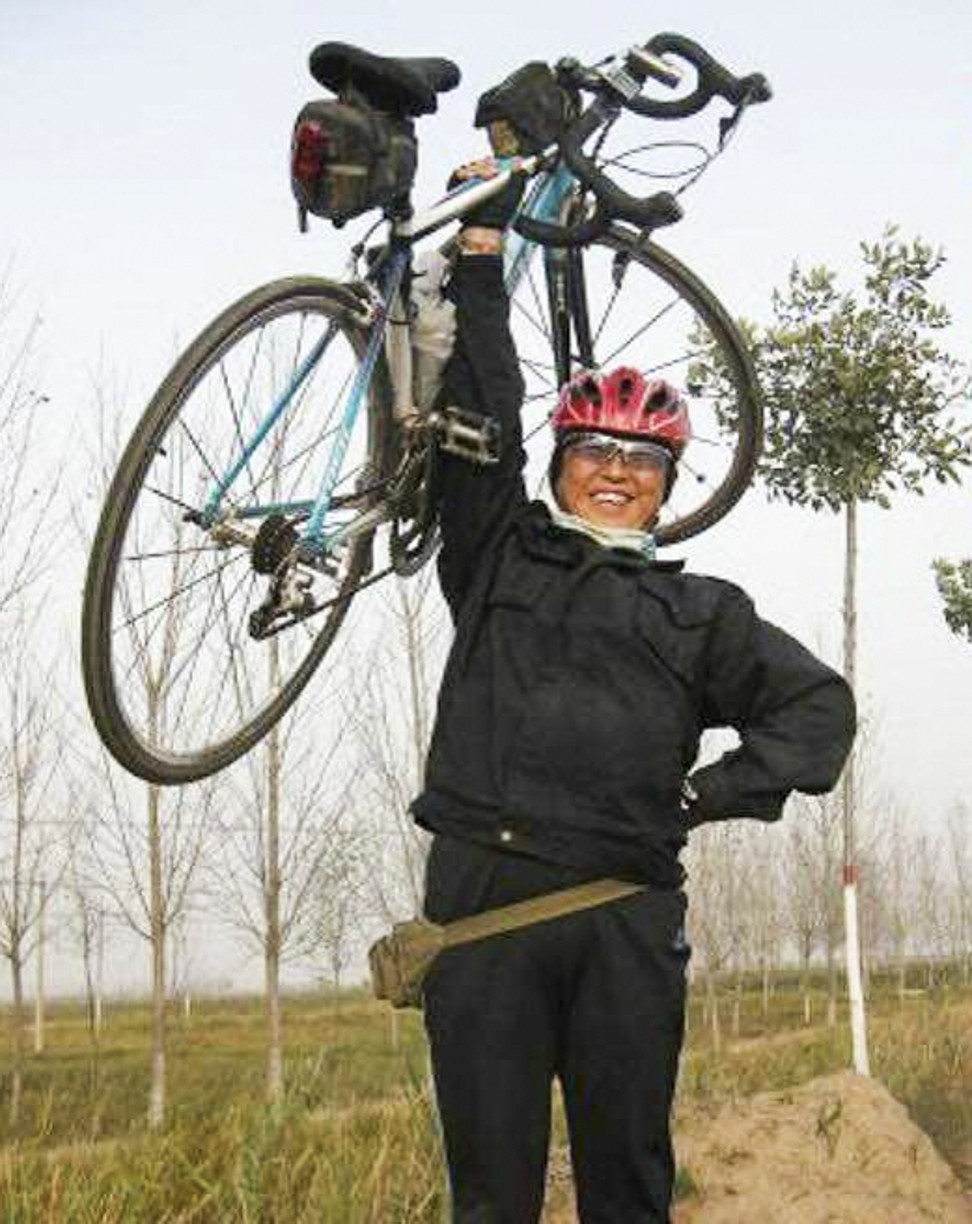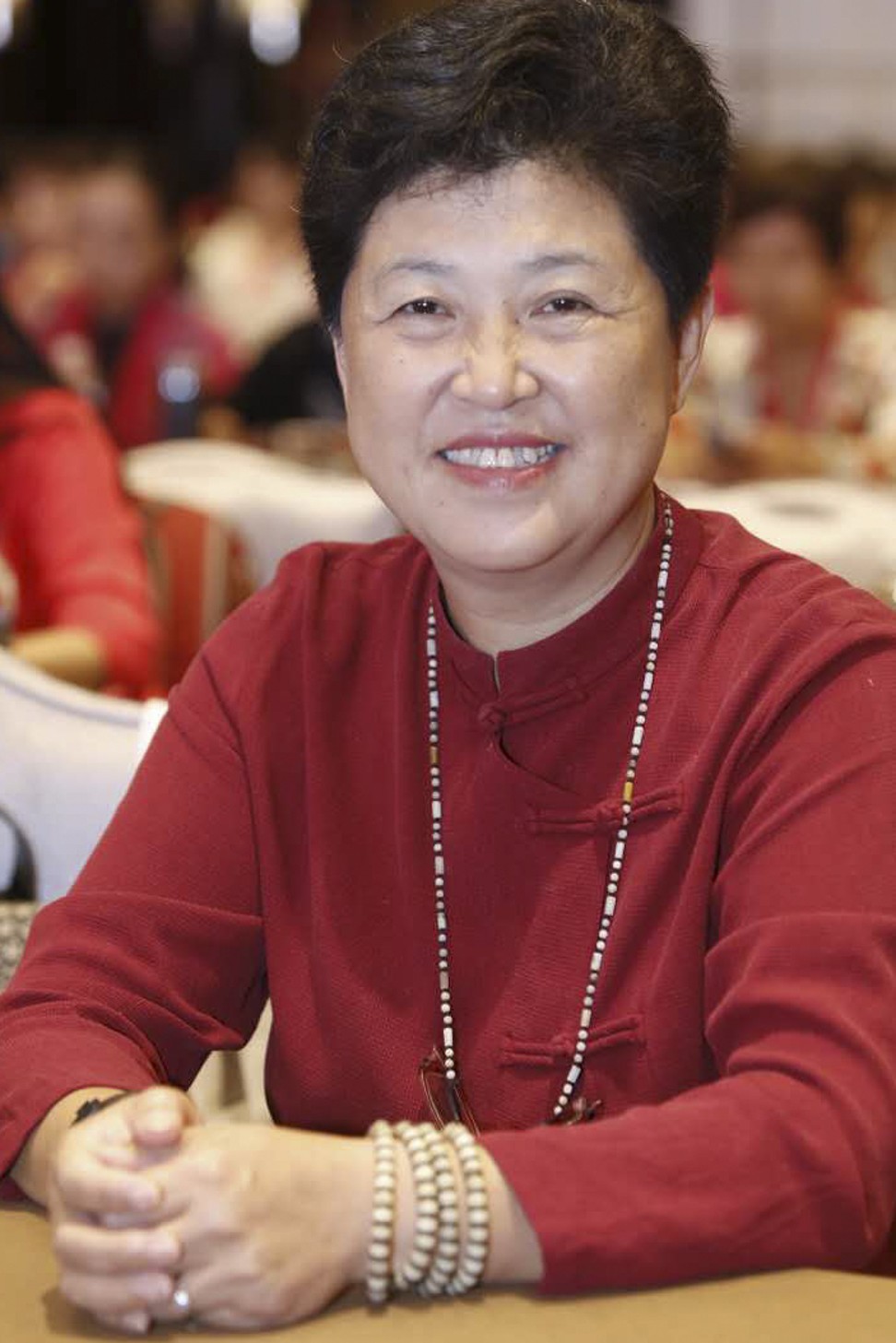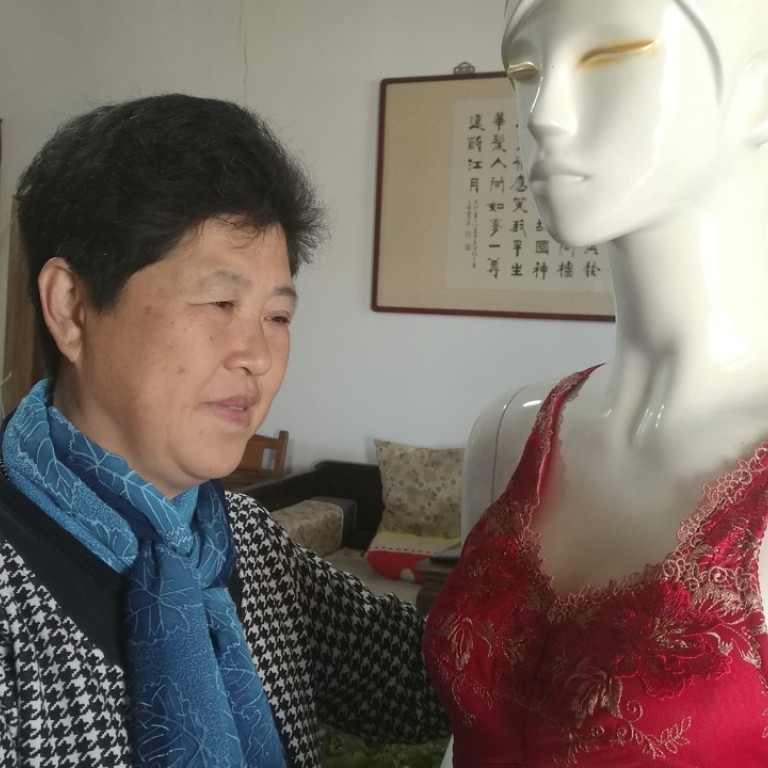
The Chinese breast cancer survivor helping other patients regain their self-esteem
‘I always tell patients that breast cancer is not that scary,’ says Qi Lifang, a seller of silicone prostheses. ‘Your life is in your own hands’
After losing a breast to cancer, Qi Lifang was grateful for the appliance that helped her regain her positive body image. But she didn’t expect her gratitude to become a business that would help thousands of other breast cancer survivors in China recover their lost self-esteem.
For the past five years, Qi, of Yantai, Shandong province, has sold silicone prostheses as well as specially-designed bras and nightgowns to women who have lost breasts to cancer.
Her products have lyrical names like “Blossoming Flowers on the Mountain”, “Graceful Women” and “Bloomy Spring” – inspired by fellow patients who contributed to the items’ design.
“The names remind people of beauty,” Qi, 53, said. “I always tell the patients that breast cancer is not that scary. Your life is in the hands of yourselves.”
Qi said she was 41 when she had a breast removed because of the disease. In 2009, a fellow patient gave her a prosthetic breast as a gift. To her delight, it fit perfectly.
“I stared down at my chest, and the two sides looked balanced,” the former physical education teacher recalled. “My eyes brightened. I immediately got back the self I had before the surgery.”
With her confidence surging, Qi went on to complete a cycling tour of France.
Media reports about her comeback from cancer and her positive experience with the prosthesis caught the attention of fellow cancer survivors looking for their own infusion of comfort and confidence.
Qi decided to help them find the right breast replacements. But the job turned out to be tougher than she expected.
When she ordered prostheses for seven cancer patients, none of them fit when the women tried them on at her home.
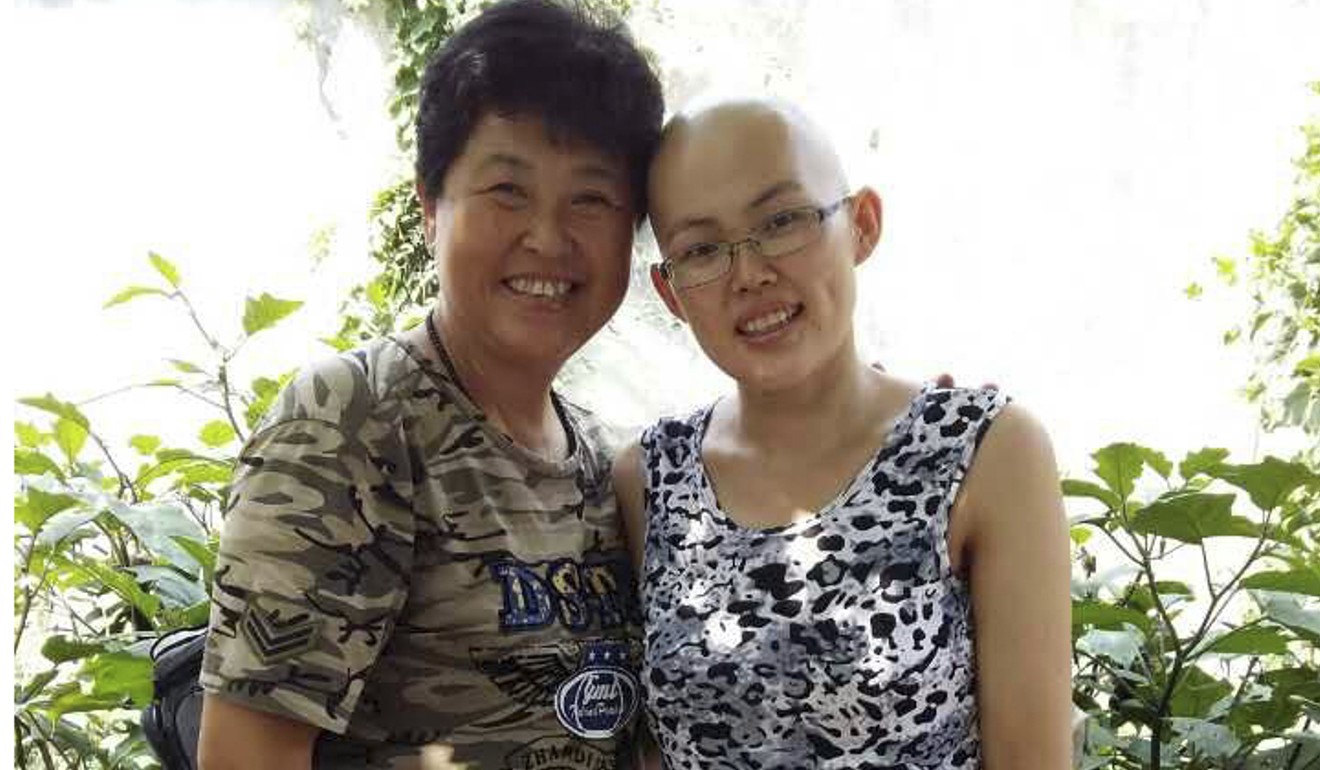
“We decided to forget about the size and try each other’s,” Qi said. “Eventually three found the ones that worked.”
As patients began flocking to her home in search of prostheses, Qi started to build up her knowledge on artificial breast forms.
She learned that women who love sports should have lighter prostheses while older patients are best off with smaller ones that will continue to look good after their natural breasts start to shrink.
In 2012, Qi founded her prosthesis brand, naming it after her online pseudonym, Sui He, which means “easy-going” in Chinese.
Half a decade later, the business is still going strong. Qi said the items she sold had helped tens of thousands of Chinese women regain the ability to work and exercise and feel confident about their appearance again.
Besides colourful bras and nightgowns, her inventory includes 15 different sizes of breast forms for women classified by height, weight, age, breast size and scar location.
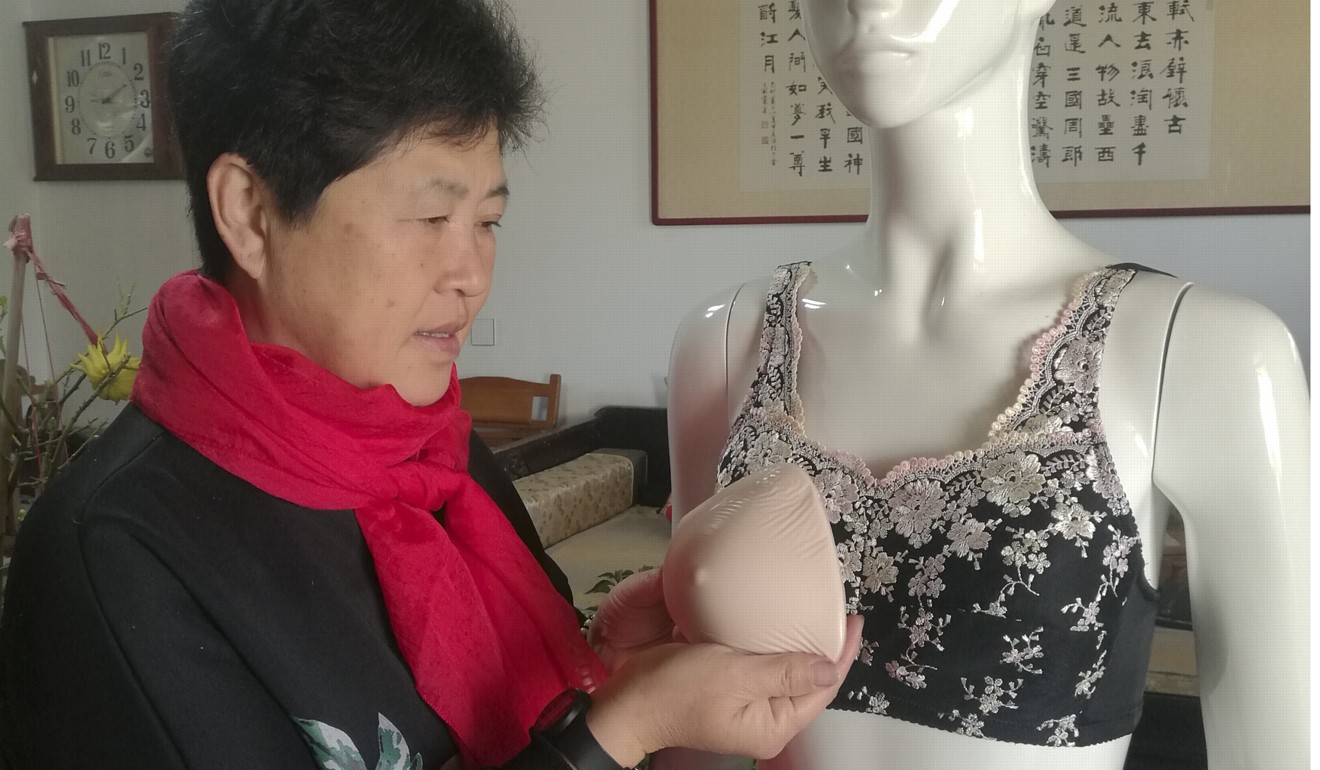
Her first nightgown product, “Zhen You Mei”, was named after two cancer survivors who worked out the design together.
Breast cancer is most common among Chinese women, with 169,452 new invasive breast cancer cases and 44,908 deaths recorded in 2008, according to a 2014 study published by The Lancet Oncology.
With breast cancer cases increasing at twice the average global rate, China is expected to have one in every 1,000 women aged between 55 and 69 develop the disease by 2021, the study says.
Despite its high prevalence, awareness of breast cancer and of patients’ needs has remained low, Qi said.
While more than 60 per cent of US breast cancer patients opted for breast reconstruction, fewer than 1 per cent received it in China where resources and acceptance of the procedure were limited, People’s Daily reported in 2015.
“I feel people intentionally avoid talking about us,” Qi said. “Many patients [in China] knew nothing about the disease before being diagnosed, so they became extremely frustrated.”
The knowledge gap has motivated Qi to try to educate Chinese cancer survivors about the things they need to know.
On the popular online radio platform Ximalaya, Qi and her associates have delivered 125 audio lectures of ½ to 1½ hours each on topics ranging from post-surgery exercises to choosing the right outfits after mastectomy.
She also runs online chat rooms on WeChat and QQ allowing about 20,000 breast cancer patients to talk about their experiences and help each other out.
In 2013, Qi recruited 99 fellow patients as her brand representatives. Their role has included not only helping cancer patients find new breasts but also answering questions that come from frustration. Six representatives whose health took a turn for the worse have since died.
“I keep telling others I have 99 staff,” Qi said. “They are still my representatives even after passing away. I feel they are still with me.”
For those who cannot afford to pay a few hundred yuan for a breast prosthesis, Qi tries to find ways to sell them for 60 yuan each.
“People who suffer from the same disease should help each other … I want those with financial difficulties to be able to buy my products in a dignified way.”


